What Al Qaeda Offshoot Destabilized Iraq Once Again in 2014 by Launcing a Mjor Offensive
The Un has failed to foreclose war and fulfill peacekeeping duties many times throughout its history. Millions of people around the globe have been killed and displaced since the UN was founded in 1945.
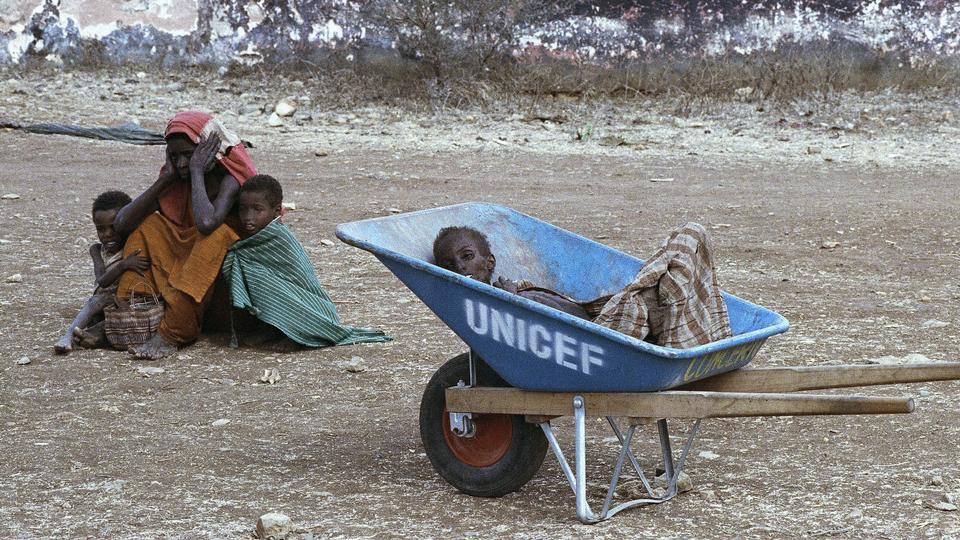
Since the second one-half of the 20th century, there have been countless wars, some of them still ongoing, all nether the sentry of the United Nations.
The United Nations (UN) was set in 1945 every bit an international umbrella organisation with several objectives primarily including the prevention of war and maintaining peace in disputed areas.
Still, the United nations has failed several times across the world mostly because of the right to veto at the disposal of five countries.
Here are some of the about damning indictments of the UN's ineffectiveness:
Israeli occupation (1948-Now)
Ever since the creation of the Jewish state in 1948, Palestinians have been fighting against what a United nations investigator once described every bit Israel'south ethnic cleansing.
At to the lowest degree 15,000 Palestinians were killed and some 750,000 out of a total population of 1.9 1000000 were forced to accept refuge far from their homelands betwixt 1947 and 1949. More than than 7,000 Palestinians and i,100 Israelis have died in the disharmonize between 2000 and 2014.
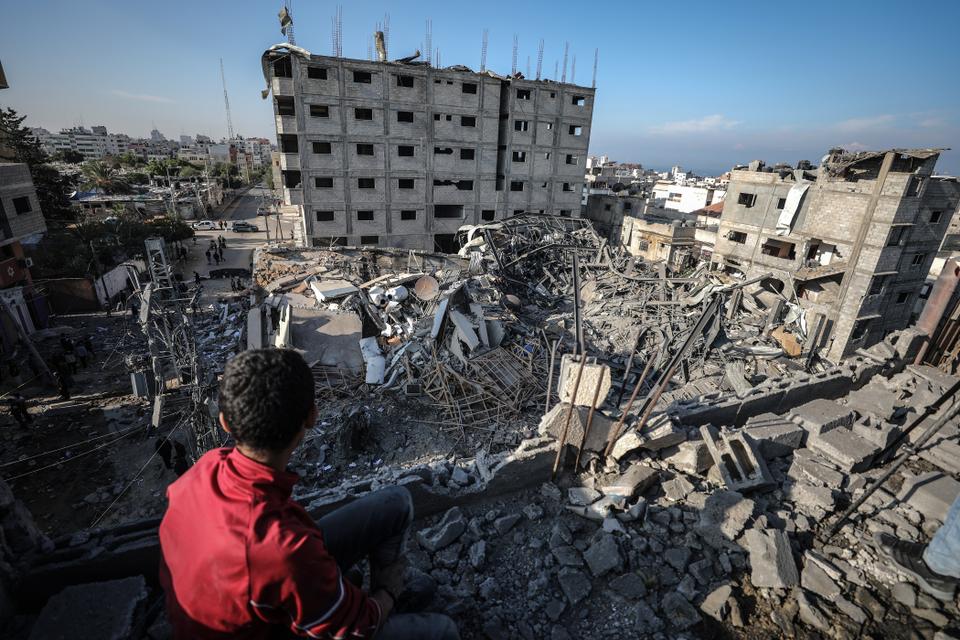
Today Israel controls 85 per centum of historic Palestine. It also imposes a crippling blockade on Gaza and continues its construction of illegal settlements on occupied lands in disobedience of several UN resolutions calling for an end to those activities.
The The states has too used its veto power several times to counter United nations Security Council resolutions that have condemned State of israel's use of strength against Palestinian civilians.
Kashmir dispute (1948-Now)
The ongoing confrontation in the disputed Kashmir region has become one of the greatest homo rights crises in history, marked by wanton killings, rape, incarceration of leaders and activists, torture and disappearances of Kashmiris, despite several unimplemented United nations resolutions over the issue.
The mountainous region is divided between Bharat and Pakistan, who have both claimed it in full since gaining independence from British colonists in 1947.
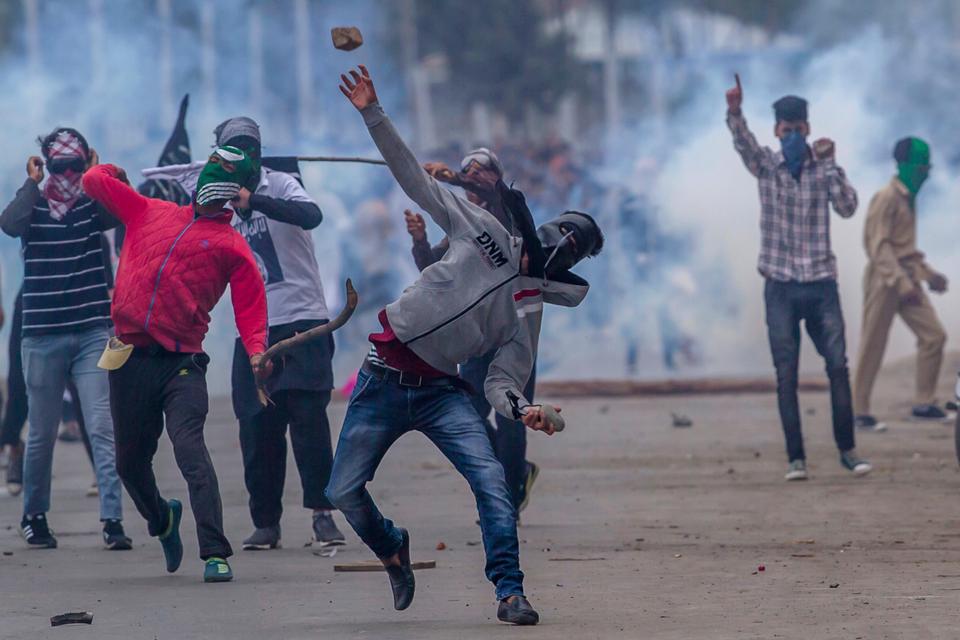
The rebellion by several Muslims groups in India-administered Kashmir, who seek either a merger with Islamic republic of pakistan or independence, has gained momentum afterward 1989. At least 68,000 people accept been killed by Indian security forces since then.
Cambodia violence (1975-1979)
After the end of the U.s.a.-Vietnam State of war and the Cambodian ceremonious war in 1975, the Khmer Rouge regime took control of Cambodia turning information technology into a socialist country, by using the policy of ultra-Maoism.
The regime carried out genocide between 1975-1979, killing some two million people, nigh 25 percentage of the country.
The Vietnamese intervention ended genocide by the Central khmer Rouge authorities. The United nations recognised the Khmer Rouge regime, while ignoring concerns of human rights violations.
Somali ceremonious state of war (1991-Now)
Since the ouster of dictator Mohamed Siad Barre by the Somali Rebellion in 1991, the decades-long civil war has raged between rival clans in the country.
The UN peacekeeping mission, UNOSOM, which was set up upwardly in December 1992 to facilitate humanitarian help to people trapped by civil state of war and famine, has since failed considering of the lack of regime to communicate with and repeated attacks confronting United nations officers.
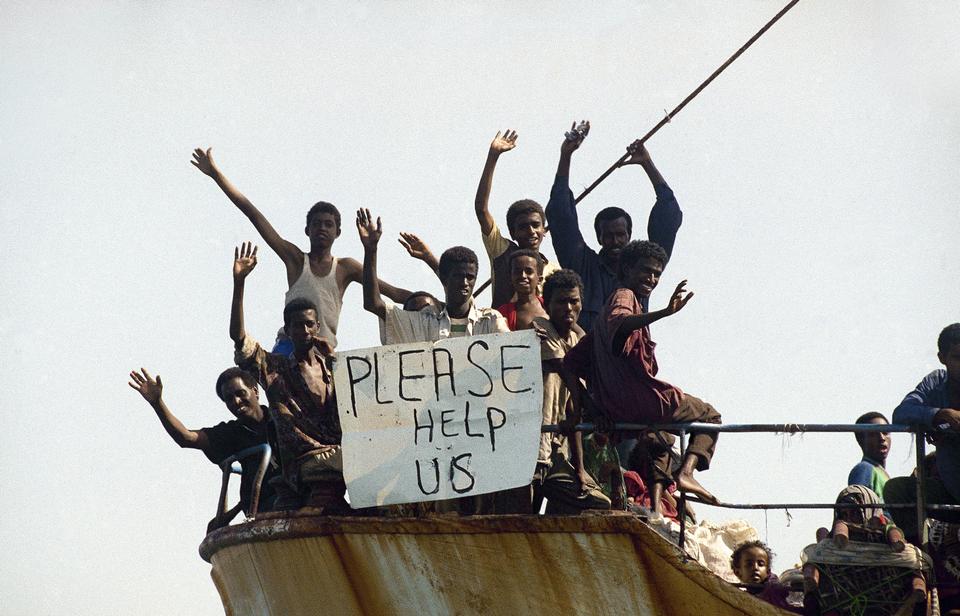
The failure of the Un peacekeeping mission caused about 500,000 civilian deaths in the country.
Rwandan ceremonious war (1994):
1 of the worst indigenous genocides since World War II, the civil war between the Rwandan Armed Forces and the rebel Rwandan Patriotic Front end (RPF) began in 1990 and lasted until 1994.
In 1994, the and so Hutu-dominated authorities killed x United nations peacekeeping officers to prevent international intervention.
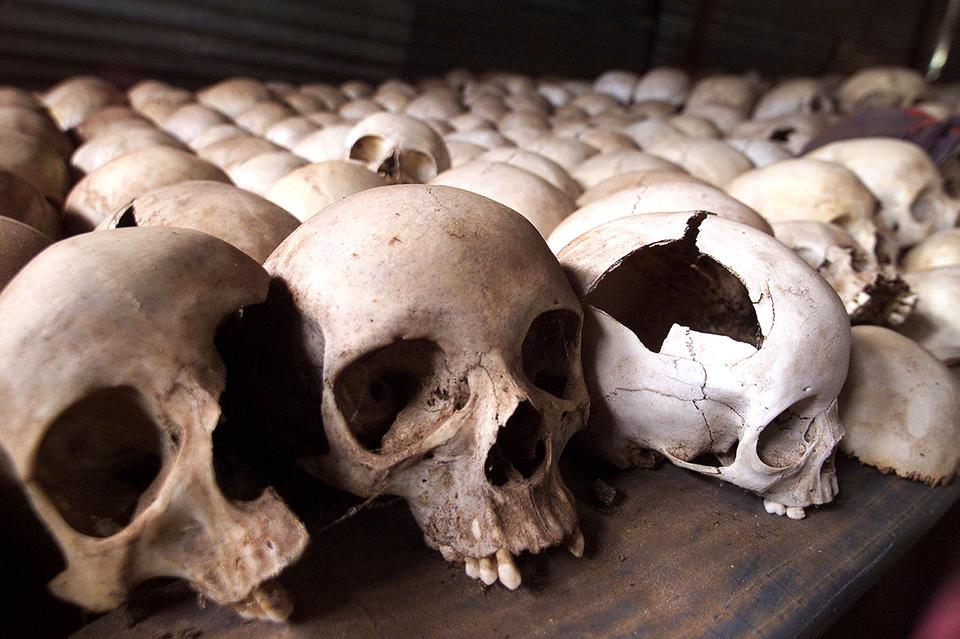
In but three months, Hutus brutally murdered about 800,000 Tutsis and raped well-nigh 250,000 women in Rwanda while Un troops abandoned the victims or just stayed there as spectators while the horrific and brutal violence raged on.
Srebrenica Massacre (1995)
In 1992, Bosnia and herzegovina declared its independence after a referendum. Following the declaration of independence, Bosnian Serbs mobilised their forces into the country with the help of the Serbian government, which led to the showtime of the war.
Effectually eight,000 Muslim men and boys were killed by Bosnian Serb troops under the command of onetime General Ratko Mladic at Srebrenica in July 1995, the worst mass killing on European soil since World War II.
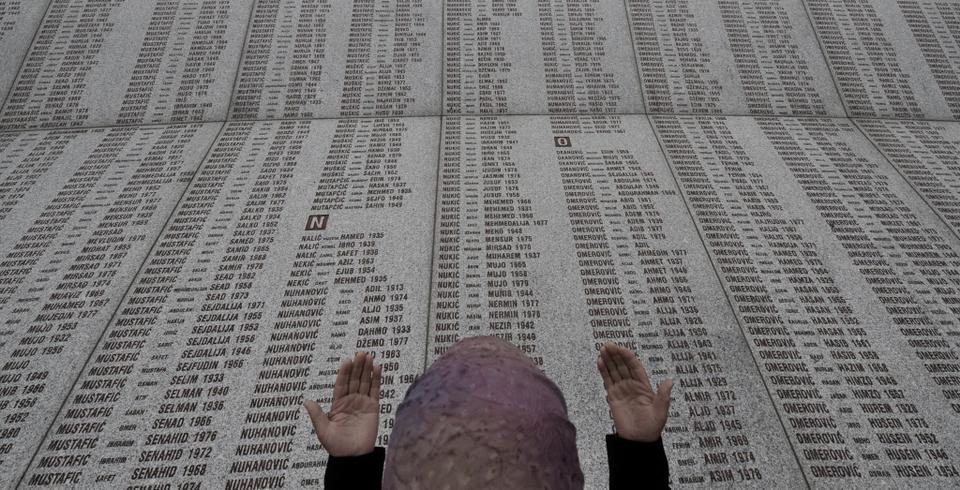
Many of the Muslim victims had fled to the United nations-declared safe zone in Srebrenica only to notice the outnumbered and lightly armed Dutch troops there unable to defend them.
Darfur conflict in Sudan (2003-At present)
Rebels in Sudan'south western region of Darfur rose up confronting the regime in February 2003, saying Khartoum discriminated against non-Arab farmers there.
Some 200,000 people have been killed in the conflict since then, while iv.4 million people need aid and over 2.5 million accept been displaced.
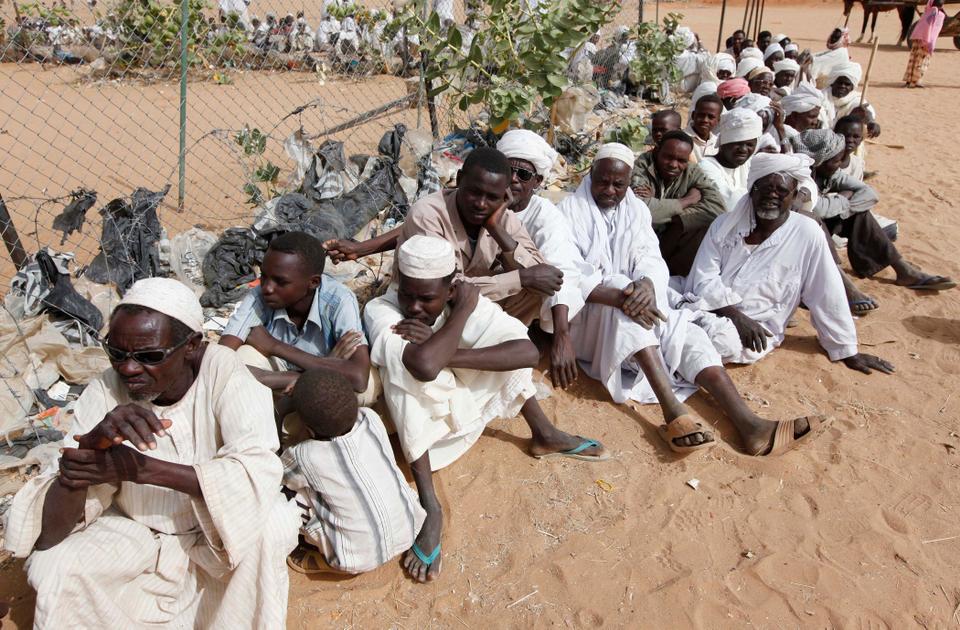
All the same, four years subsequently, the UN decided to send 26,000 troops for a resolution in Darfur.
The International Criminal Courtroom issued arrest warrants for Sudanese President Omar Hassan al Bashir in 2009 and 2010 on charges of war crimes and genocide in his bulldoze to shell the Darfur revolt.
Iraq invasion (2003-2011)
More than one million Iraqis accept died as a result of the conflict in their country since the Us-led invasion in 2003, according to research conducted past ane of Britain'due south leading polling groups.
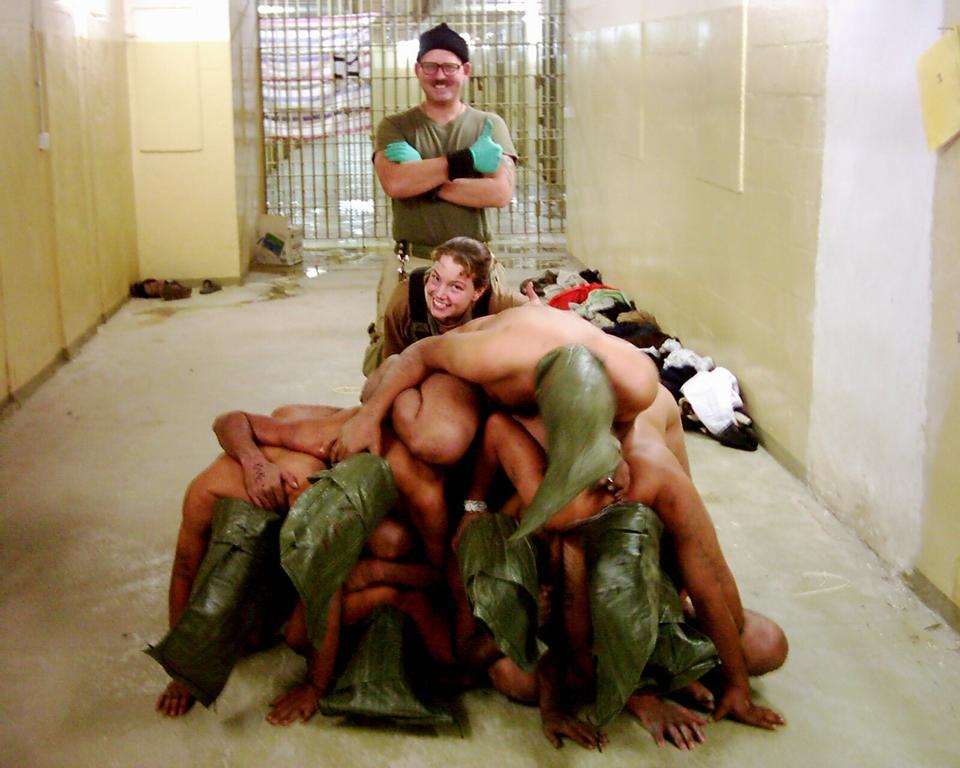
The intervention and regime change sought by the US left Iraq with civil and economic instability, and vulnerable to terrorism by Daesh in the coming years.
United nations Resolution 1483 attempted to legitimise the invasion that was carried out under the simulated assertion past the United states and the United kingdom that the Saddam regime was in possession of Weapons of Mass Destruction.
Syrian civil war (2011-At present):
The Syrian regime launched a vicious crackdown on peaceful protesters who took to the streets in March 2011, with its leader Bashar al Assad proverb he would "relentlessly fight terrorist groups"— referring to the pro-republic protesters.
The regime released imprisoned Al Qaeda members, correct after the protests turned into an uprising, who later formed the backbone of leadership in Daesh, which spread to Syrian arab republic in 2014 from Iraq.
Several strange countries are involved in several conflict areas across Syria.
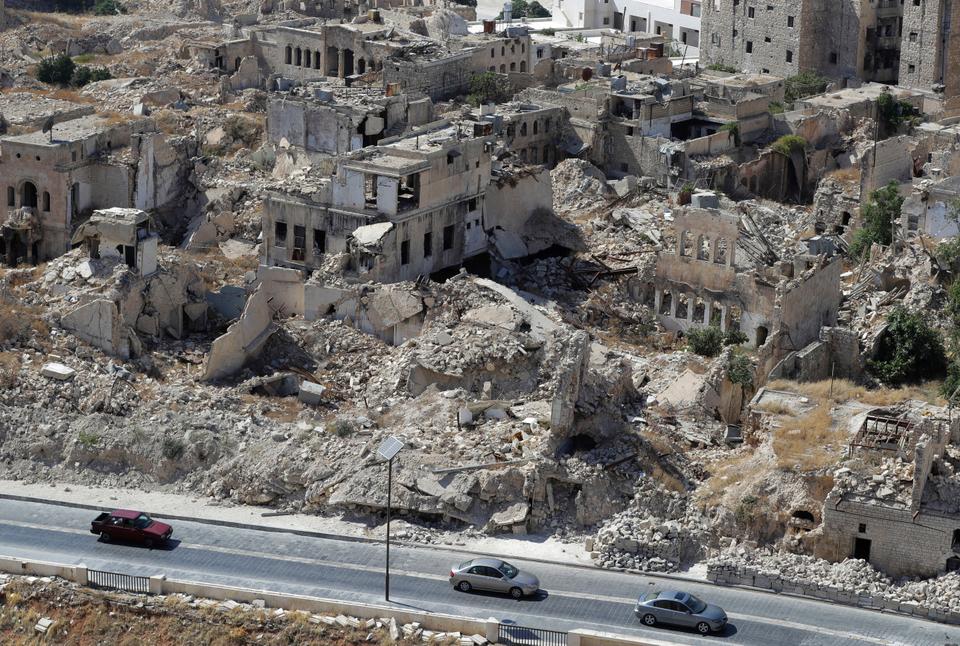
In the twelvemonth that followed, the UN Security Quango tried to laissez passer several resolutions to address the conflict, simply Russia utilised its veto power at least a dozen times to protect its ally, Assad.
Syria'due south conflict alone had, by the end of last year, pushed more than vi.3 million people out of the country, accounting for nearly ane-third of the global refugee population. Another half-dozen.2 one thousand thousand Syrians are internally displaced.
South Sudan (2013-At present)
South Sudan became an independent land in July 2011, separating from Sudan.
The country has been experiencing a ceremonious war between President Salva Kiir, from the Dinka indigenous group, and old vice president Riek Machar, frin the Nuer ethnic group.
In the civil war, at least 382,000 people have been killed, according to a State Department-funded report.
— ICRC (@ICRC) November 14, 2018Imagine, your town is attacked.
Yous see friends killed.
Your home is destroyed.
You're forced to run and hide.
Y'all lose your family in the anarchy.
You cannot return.1 in iii people in #SouthSudan have been forced from their homes.
They don't accept to imagine. film.twitter.com/D1OURqUsyM
More fourteen,500 UN peacekeeping officers deployed in the state have failed to preclude the humanitarian crisis in Southward Sudan. The conflict has forced ii.5 one thousand thousand people to flee the country and left some other one.8 one thousand thousand people displaced within Southward Sudan. Nearly five million people are also facing astringent food insecurity.
Yemen civil war (2014-Now)
The war in Yemen, which began in 2014, betwixt forces loyal to the internationally-accepted government of President Abd Rabbu Mansour Hadi backed by Saudi Arabia and Iranian-backed Houthis has turned more violent after a Saudi-led international coalition started operations against Houthis in March 2015.
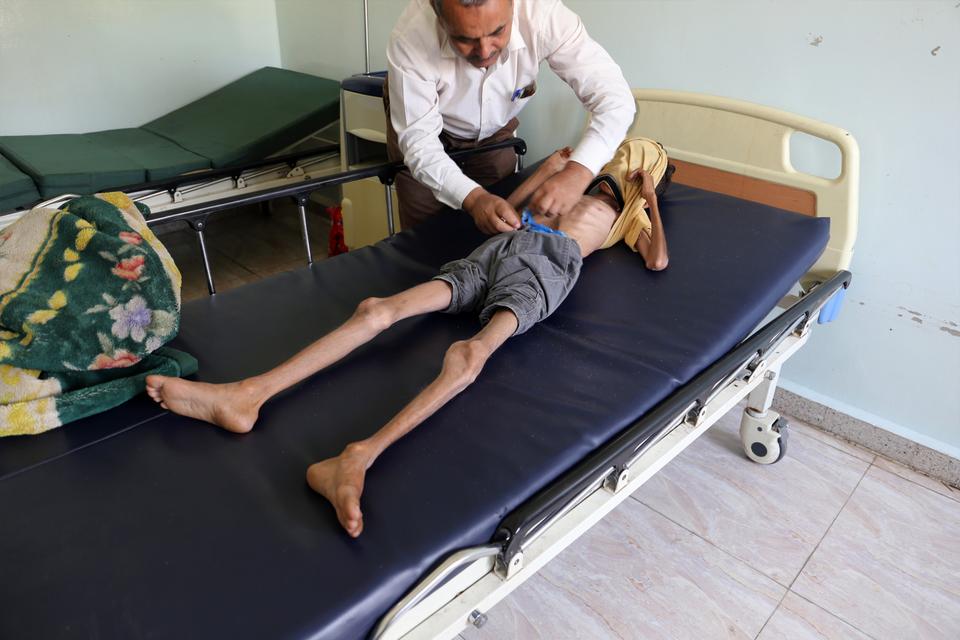
The Saudi-led coalition began its intervention in Yemen in 2015, escalating the war, which left the poorest country in the Arab earth in a state of disaster.
The UN has failed to send humanitarian aid, food and drugs to civilians amid a blockade imposed on the war-torn state.
Rohingya Crisis, Myanmar (2017-At present)
On August 25, 2017, Myanmar launched a major military crackdown on the Muslim ethnic minority, killing almost 24,000 civilians and forcing 750,000 others, including women and children, to flee to Bangladesh, according to the Ontario International Development Agency (OIDA).
People's republic of china stood backside Myanmar on the Rohingya crisis by blocking efforts for the Rohingya in the UN Security Council.
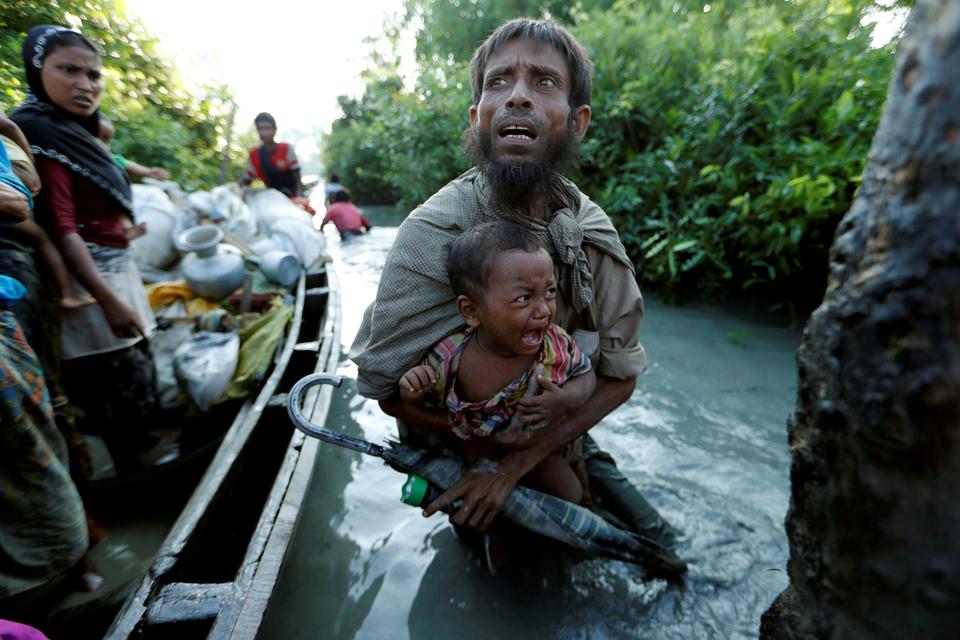
The Un documented mass gang rapes, killings — including of infants and young children — roughshod beatings and disappearances committed by Myanmar state forces. The UN has described the Rohingya every bit the "world'south most persecuted people."
Source: TRT World
petherickacketwound.blogspot.com
Source: https://www.trtworld.com/americas/twelve-times-the-un-has-failed-the-world-21666
0 Response to "What Al Qaeda Offshoot Destabilized Iraq Once Again in 2014 by Launcing a Mjor Offensive"
Post a Comment